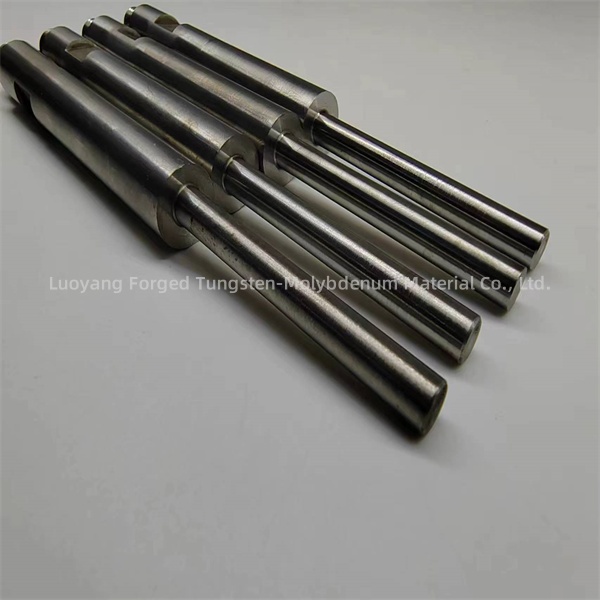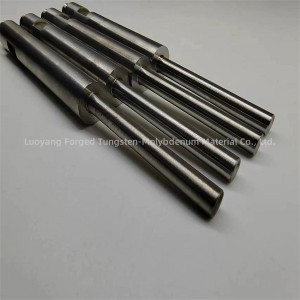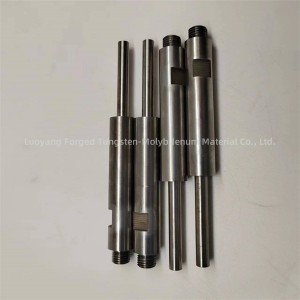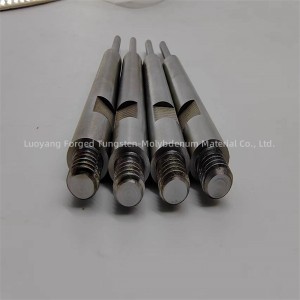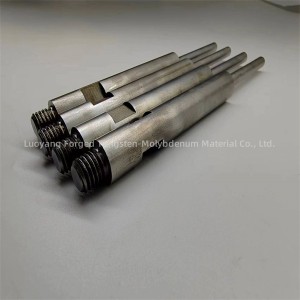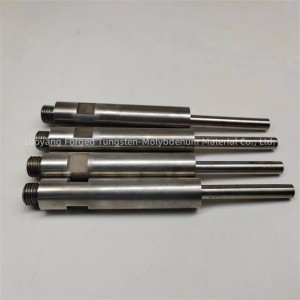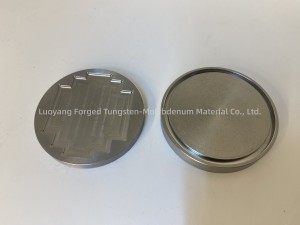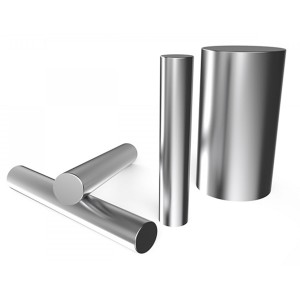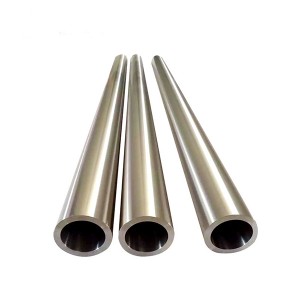high hardness tungsten boring bar with internal thread
Boring bars are important tools used in machining operations to enlarge or finish the inner diameter of a workpiece. They come in several types, each designed for specific applications and processing requirements. Some common types of boring bars include:
1. Solid Boring Bars: These are one-piece tools made from solid bar stock. They are versatile and can be used in a variety of boring operations.
2. Indexable Boring Bars: These boring bars feature replaceable carbide inserts for easy and cost-effective tool maintenance. When the insert wears, it can be indexed or replaced, extending tool life.
3. Carbide boring bars: These boring bars are made of carbide, a hard and wear-resistant material. Carbide boring bars are suitable for high-speed machining and can withstand heavy cutting forces.
4. Anti-vibration boring bars: These boring bars are designed to minimize vibration during machining, thereby improving surface finish and extending tool life, especially in long-reach or deep hole boring applications.
5. Double-cut boring bars: These boring bars have two cutting edges that increase productivity and improve surface finish in certain applications.
6. Boring head with boring bar: The boring head is used in conjunction with the boring bar to perform precise inner hole processing operations. Insert the boring bar into the boring head and adjust to achieve the desired diameter and surface finish.
These are just a few examples of the different types of boring bars available, each with unique features and benefits to meet specific machining requirements. The choice of boring bar type depends on factors such as the workpiece material, the desired surface finish, the depth and diameter of the hole, and the specific machining conditions.

The difference between steel boring bars and carbide boring bars lies mainly in their material composition and performance characteristics. Here are some of the main differences:
material ingredient:
- Steel boring bars: Steel boring bars are typically made from high-speed steel (HSS) or other steel alloys. While steel is tough and durable, it may not have the same level of hardness and wear resistance as carbide.
- Carbide boring bars: Carbide boring bars are made from tungsten carbide, a composite material that combines tungsten with a bonding metal such as cobalt. Tungsten carbide has superior hardness, wear resistance and heat resistance compared to steel.
Performance features:
- Tool life: Carbide boring bars generally have longer tool life than steel boring bars due to their superior hardness and wear resistance. This reduces tool changes and increases productivity.
- Cutting speed: Carbide boring bars can withstand higher cutting speeds and feed rates compared to steel, making them suitable for high-speed machining operations.
- Surface finish: Carbide boring bars produce a finer surface finish because they maintain a sharp cutting edge over time.
- Machining applications: Steel boring bars are suitable for general machining, while carbide boring bars are generally better suited for high-precision, high-speed and heavy-duty machining applications.
Cost considerations:
- Steel boring bars are generally more cost-effective than carbide boring bars, making them a practical choice for less demanding machining tasks.
- The initial cost of carbide boring bars may be higher, but their extended tool life and performance benefits can lead to long-term cost savings.
In summary, the choice of steel and carbide boring bars depends on specific machining requirements, including material type, cutting conditions, surface finish requirements and cost considerations.

Wechat:15138768150
WhatsApp: +86 15838517324
E-mail : jiajia@forgedmoly.com

